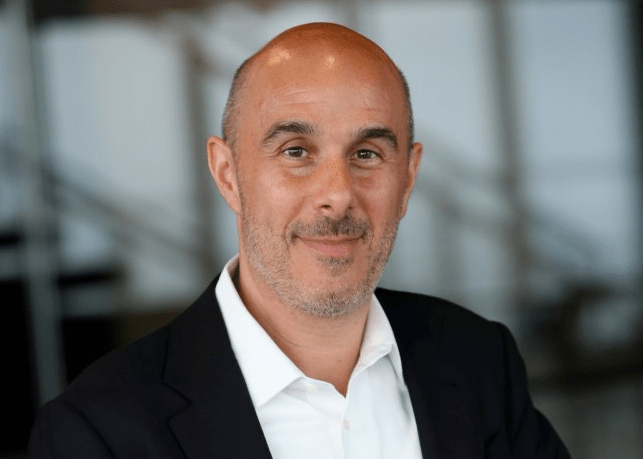Gen Z has a new name for fall, according to a viral social media trend: “The Great Lock-In.” As reported by Fast Company and several other outlets, it’s a time to move past the sun and fun of the summer and into a focused period. Whether it’s in your career, finances, or something to do with your personal brand, the time to get locked in harkens back to the phrases origins in video games, when you lock in the character you’re going to play with, beating all the levels and bosses on the way to conquering each particular quest.
Yet the sudden ubiquity of this phrase also reveals the extraordinary pressure the young-adult generation feels to decipher a puzzle-like economy that barely rewards their best efforts. For Gen-Z, the drive to self optimize is relentless, a driver shaped by both economic precarity and a digital culture that allows and rewards constant productivity. And for a generation that famously loves to mock its forbears the millennials, it closely recalls the “hustle culture” that aged so poorly after the 2010s.
In fact, the shift represents Gen Z adopting a “hustle season,” a big shift away away from trends such as “job hopping,” where doing the bare minimum was the norm, according to Resume.AI, a brand that is part of the career services platform career.io. “Gen Z professionals are rewriting the rules for how to get ahead at work,” says Amanda Augustine, a certified professional career coach and spokesperson for career.io. “They’re intentional about how they spend their time, focused on building skills, and becoming resilient in the face of uncertainty.”
In the past six months, according to Resume.AI, TikTok videos about career security have gathered over 130,000 views, showing that young workers are locking into a new kind of focus: on building skills, getting noticed, and standing out at work.
So is the fall of 2025 when Gen Z discovered the hustle? And is that a good thing?
Economic pressures and structural barriers
Generational generalizing can be tedious and overdone. It’s a bit like astrology for current events. But generations, or at least micro-cohorts of them, are undeniably shaped by the macroeconomic forces that constrict and expand during their (young) adult years. Millennials had a famously tough time recognizing the milestones of previous generations that were archetypal to the American Dream: buying a house, getting married, starting a family, climbing the career ladder.
Since 2019, cumulative inflation stands at 26%, eroding any real progress made through job-hopping or promotions. If those milestones were like a faultline for millennials to hurdle, they appear to have mutated into a yawning gap for Gen Z. Bank of America Research finds that Gen Z has largely been surprised by the big hit to their livelihoods from rent and utilities. Many are also living at home, enduring a “romance recession” and going out less than previous generations. These conditions have produced what some call a “failed launch,” as young adults delay independence, relationships, and even leisure compared with earlier cohorts. They’ve even embraced old-school hobbies in some quarters, dubbing them “grannycore.”
Even macho sports culture shows evidence of these trends. The youthful Oklahoma City Thunder celebrated their first NBA championship in June and endured widespread mockery from the internet when most of them were confused and then disgusted by their first taste of champagne. (The entirely Gen Z roster was the youngest NBA champion since 1977.) That is, after they figured out how to pop the corks. The substacker Ethan Strauss, a longtime former NBA beat reporter, called it “Gen Z’s non drinking moment.” Gallup polling shows Gen Z really is driving a drinking recession (not to mention a cereal shortage). But nobody can say that the Thunder weren’t locked in. After all, they’re the champs.
Life is a rigged game but you don’t want NPC status
At least partly because of the economic realities they’ve inherited, Gen Z is known to be progressive and vocal about how structural inequality shapes their outcomes. More than half say income inequality and lack of opportunity are their top concerns, and one in five even report that direct experiences with discrimination have already influenced their career paths. They seek employers who are responsive to demands for inclusivity and align with their social values, treating work as a place to exert their value-systems, not just grab a paycheck. They’re pragmatic and skeptical since they have few reasons to believe that traditional milestones are achievable under current conditions, and they are quick to frame those struggles as systemic failures rather than personal shortcomings.
But they’re also the generation raised on social media, swimming in a digital sea full of influencers, content creators and entrepreneurs who are living proof that some people can gain financial independence and beat the game of life. They know that life is a game and their phones are the controllers and the worst fate is to become a non-playing character. Over half of the generation says hard work, not luck, drives success. This paradox—seeing the system as rigged but loath to fall into the NPC pit—is emerging as a defining Gen Z quality.
At any moment, anyone with a smartphone can be “locked in,” moving toward the next achievement. Gen Z turns to TikTok influencers to “looksmax,” they utilize AI chatbots to optimize their interview performance, and they post on Instagram to build an independent brand that insulates them from a shoddy labor market. Technology has democratized opportunity, yes, but that also translates into a relentless pressure to self-optimize.
Hustle culture is just a season now
Chronic striving has its downsides, though. Nearly half of Gen Z report ongoing mental health challenges, while industries obsessed with productivity have led some to “task mask”—look as busy as possible at all times—to avoid job cuts or social irrelevance. Experts warn this could entrench stress and burnout rather than foster real economic security.
Speaking of burnout, that was the ultimate destination for the generation that came before, singed by their naive belief that adopting a neo-Stakhanovite approach to work and careers would pay off. The “girlboss” gave way to the “snail girl” and millennials’ hardcore work ethic gave way to a “soft life,” a byproduct of a grueling pandemic that gave rise to a YOLO economy full of meme-stock speculation and generalized quest for adventure.
The rise of “hustle season,” then, may be a final rejoinder from Gen Z to their older siblings. The answer isn’t to toggle back and forth between going all out and retreating into pastoral fantasies, but to recognize that for everything, there is a season. Sometimes you have to choose your character and lock in, they may be saying, but the game will end at some point and you’ll have to lock into another gear, when the time comes.













